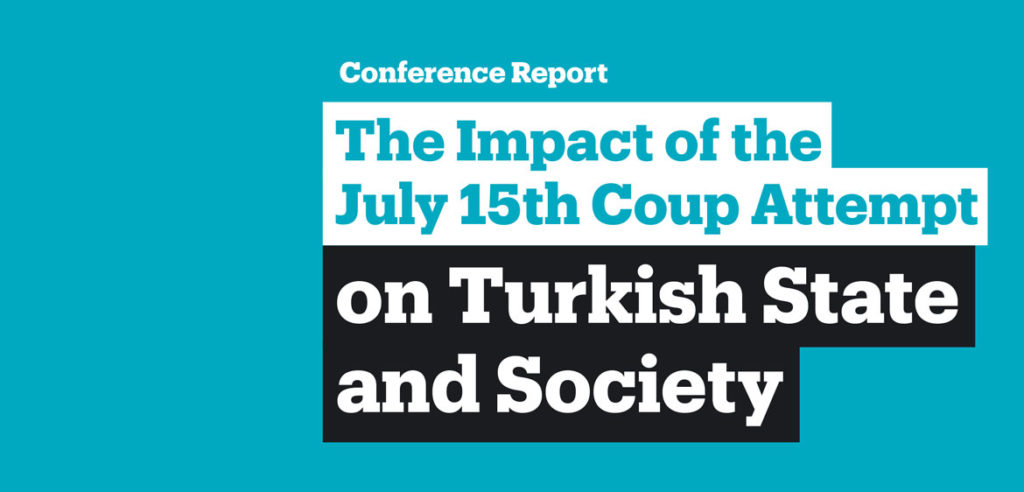In this session, a distinguished panel of speakers and participants convened to explore the origins, impact and lasting legacy of the brutal coup attempt in Turkey, in which many innocent civilians lost their lives and thousands were injured. During the night of July 15, 2016, a group of soldiers attempted to overthrow the democratically elected government in Turkey. Thousands of ordinary men and women took to the streets to oppose the coup. The confessions of some of the putschist soldiers and key evidence during the night of the coup indicated that Fethullah Gulen – a Turkish cleric living in the US – and his followers were directly involved in the coup attempt. Within this framework, the session explored the roots of the coup in Turkey based on civil-military relations, development of the FETO and the impact of the coup attempt on national and international politics of Turkey.
The after-effects of the failed coup attempt and the nations’ continued shock and grief was the subject of intense discussion during the session. One of the speakers emphasized the link between the military tutelage in Turkey and the development of the FETO and Gulenist coup attempt. He evaluated how 15 /the 15th of July influenced the state system and triggered the institutional transformation of Turkey to prevent potential coup attempts. The next speaker addressed the role of the Turkish people in preventing the coup, emphasizing the social, economic and political changes during the AK Party period. Participants contributed to the session by discussing various issues such as disputed understanding of the coup by international actors, FETO activities in the USA and the rest of the world, influence of the coup on national and international politics of Turkey and finally the post-coup era in Turkey.
While Turkey presented the entire evidence that linked FETO with the coup, the disputed understanding of the FETO by international actors was the most highlighted issue in the participants’ comments. One of the participants emphasized the importance of Turkey’s investment in clarifying and presenting the illegal activities of FETO within the state as well as in other countries. Furthermore, questions arose in regards to the reasons behind the failure of the coup attempt and how it differed fundamentally from the countries long and bitter history of successful military takeovers. Towards the end of the session, the participants discussed how ordinary citizens – regardless of race, culture and political affiliation – were crucial in defeating the coup and that their public display of unity have emerged as factors that underpin Turkey’s democracy.
